The Core in Action
The Core curriculum engages undergraduates across disciplines in a wide variety of experiences that together provide a foundation for their coursework at UChicago—see examples of the Core in action below.
The Core curriculum engages undergraduates across disciplines in a wide variety of experiences that together provide a foundation for their coursework at UChicago—see examples of the Core in action below.
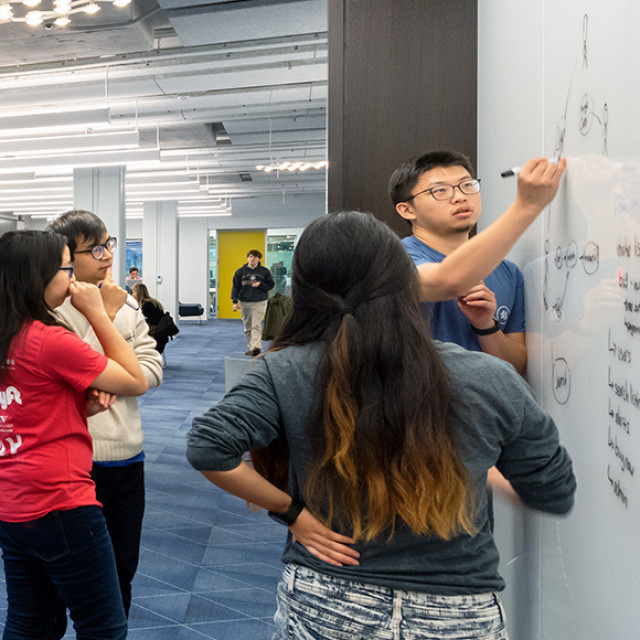
The new 140s introductory computer science sequence to replace the 120’s, 150’s, and 160’s debuted Autumn 2022. This comprehensive and functional curriculum begins with applications programming in Python and then transitions into systems programming in C—offering students the opportunity to learn fundamentals of coding not just for Computer Science majors, but also as a sequence that fulfills the Mathematical Science Core requirement.
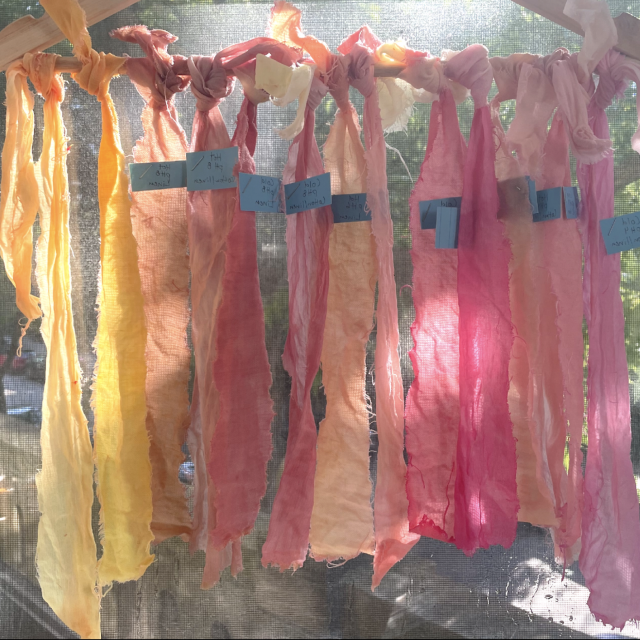
In Professor Lant’s “Chemistry of Artist’s Materials” course, which she will teach for the first time in the Fall Quarter of 2023, one of the main learning goals is to connect molecular structure with how we view color of dye molecules and pigments. In one lab, students will reproduce one of many historical processes in which two closely-related dyes, precarthamin and carthamin, shown in the figure, are extracted from petals of the safflower plant. These dyes have been historically used in several cultures in parts of China, India, and Western Europe, often to dye silk. By manipulating pH and temperature conditions, we can preferentially extract either the yellow precarthamin or the red carthamin dyes and we can use chemical principles in solubility and mordanting to explain the phenomena that dyers who used these procedures knew empirically.
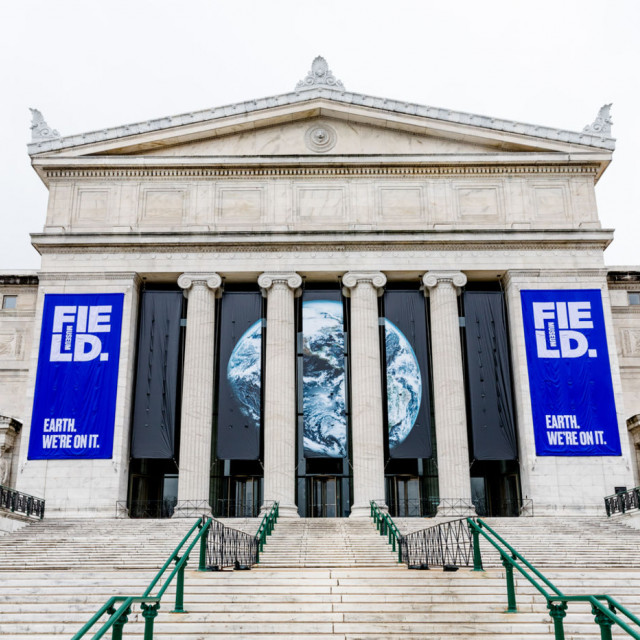
Students enrolled in BIOS 12117: The 3.5 Billion Year History of the Human Body embarked on a scholarly excursion to the Field Museum's Evolving Planet exhibit, aimed at exploring the evolution of life on Earth and the consequential emergence of humanity. The exhibit featured a vast collection of fossils, artifacts, and specimens spanning over four billion years of Earth's history. Through interactive displays and guided tours, students observed the ways in which humans adapted to their changing environments using tools and weapons, developed agriculture, language, and culture, and formed complex societies, shaping the course of human history. This captivating experience offered students an enriching and enlightening opportunity to delve into the wondrous diversity of life on Earth and the intricate evolutionary processes that culminated in the emergence of our own species.
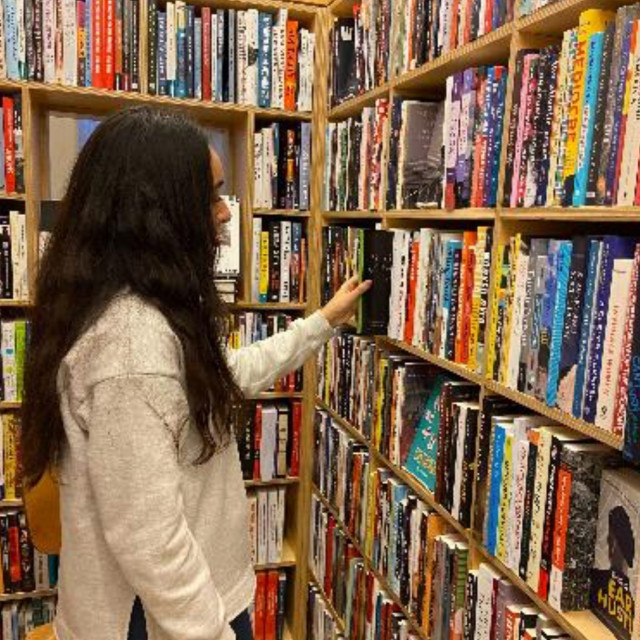
Students in Professor Jonny Bunning’s Fall sections of Global Society completed a series of small tasks to build skills often assumed but rarely taught. One involved visiting the Seminary Coop Bookstore, finding the sociology section, and writing a short description of a book of interest; students later visited the analogous section in the Regenstein Library bookstacks and compared the kinds of texts they found in each. This aimed to build practical familiarity with two unique resources—not everyone grows up visiting bookstores or research libraries—and to let students explore the discipline of sociology by comparing two (different) ways of classifying its contents. A second exercise involved breaking an innocuous social norm of one’s choice and then writing a short analysis of the experience. Students walked backwards for a day, stood up in class, wore formal clothes to breakfast. “Inspired by the famous ‘breaching experiments’ of Harold Garfinkel, I wanted my students to see that social life is all around them (not just in books), and is held together by tacit norms as much as by formal covenants. Many of the authors we read, such as Han Feizi, Ibn-Khaldun, Sarmiento, and Hobbes wrote in exile, and social thought has long benefitted from the views of outsiders. Thinking the world afresh often means stepping out of the box.”—Professor Jonny Bunning
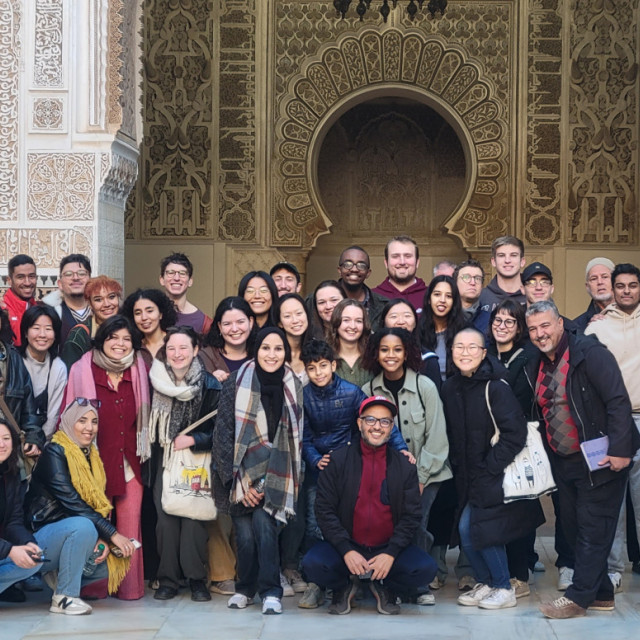
Students can choose from 22 different Study Abroad programs to fulfill their Civilization Studies Core in an immersive quarter-long cultural exchange experience. This Winter 2023, a cohort of over 20 students studied Middle Eastern Civilizations in Marrakesh, Morocco: a city at the crossroads of three dynamic regions—North Africa, Europe, and the Near East—linking the West to the Islamic and Middle-Eastern worlds.
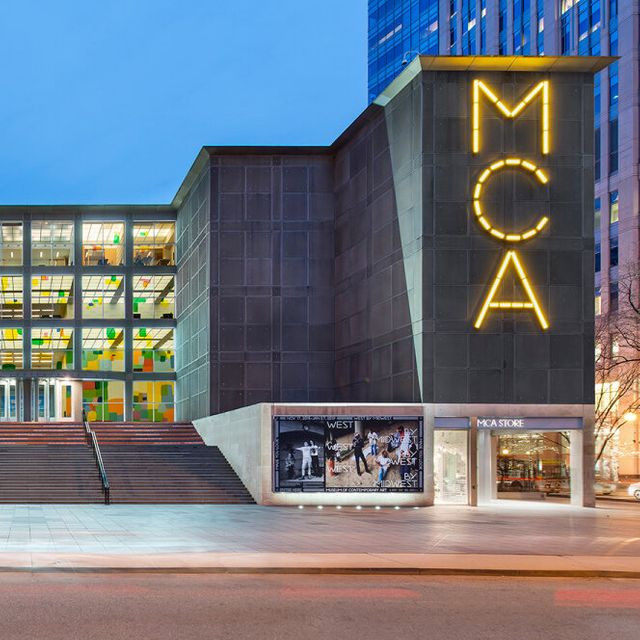
Students in Professor Maggie Borowitz’s Winter 2023 section of Modern Latin American Art visited the Museum of Contemporary Art’s exhibition Forecast Form: Art in the Caribbean Diaspora, 1990s–Today. The assignment was to select an artwork that stood out to them and write a brief reflection that was grounded in their observations of the work and which engaged with the themes and histories they had been examining in the course. “This was an opportunity for students to experience artworks first hand, to think about the questions we've been considering in a more contemporary context, and to practice their close looking skills in an exhibition that features a wide range of artistic mediums.” -Professor Maggie Borowitz.
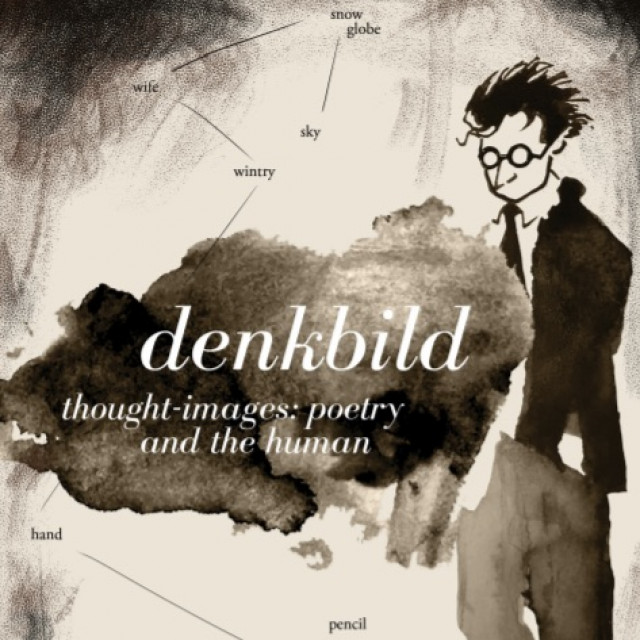
The newest Humanities Sequence, Poetry and the Human (PATH), has a unique Spring quarter “split.” Students can choose to take a third quarter of the sequence as either a Humanities or an Arts core course. After learning poetry for two quarters, those taking the Arts Track for their Spring Quarter PATH will get to engage directly in creative poetic writing process in a workshop style class.